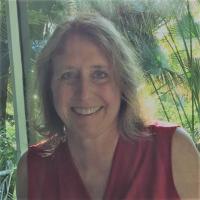Event Date
Equity and Greenhouse Gas Effects of An Electric Car-Sharing Pilot in Rural Disadvantaged Communities in California’s Central Valley
Event Overview
Providing cost-effective transit service is challenging in rural areas due to greater travel distances, lower population densities, and longer travel times than in cities. Access to a personal car is often essential for most residents to access work, health care, education, healthy food, and other essential services. But keeping a car in reliable working order can consume up to half of a low-income family’s budget in California.
Multiple partners came together to launch Míocar in 2019. Míocar is a non-profit, electric car-sharing service meant to offer a cost-effective mobility option for residents of rural disadvantaged communities and help reduce greenhouse gas emissions. Affordable housing complexes host the round-trip electric car-sharing hubs in southern San Joaquin Valley communities with low levels of intercity transit service and personal vehicle ownership. This webinar will highlight early research evaluating Míocar’s success in achieving its goals and will feature perspectives from key partners involved in the pilot.
This research was also made possible through funding received by the UC Institute of Transportation Studies from the State of California via the Public Transportation Account and the Road Repair and Accountability Act of 2017 (Senate Bill 1).

Míocar is part of California Climate Investments, a statewide initiative that puts billions of Cap-and-Trade dollars to work reducing greenhouse gas emissions, strengthening the economy and improving public health and the environment — particularly in disadvantaged communities.
Speaker

Dr. Caroline Rodier | Researcher, UC Davis Institute of Transportation Studies
Caroline Rodier, Ph.D., is a Researcher at the Institute of Transportation Studies at the University of California, Davis. Her primary areas of research include transport, land use, and environmental planning and policy analysis. Caroline’s current research interests include the development and evaluation of shared mobility services designed to meet the needs of transport-disadvantaged populations. Most recently, she has partnered with public agencies, community-based organizations, and technology services to implement and evaluate several shared mobility pilots in low-income disadvantaged Central Valley communities in California. Caroline’s travel modeling research focuses on the travel, equity, and health effects of the integration of shared mobility services into regional transportation systems.
Guest Respondents

Creighton Randall | Chief Executive Officer and Principal Consultant, Mobility Development Partners
Creighton launched Mobility Development Group in 2018 and leads work to develop pilot programs and funding for shared mobility so that these systems can work for everyone. The organization is evolving to provide both initial development of community-controlled shared mobility networks and back-office support for these programs, which focus on providing service to disadvantaged communities. In additional to continuing support for the BlueLA program in Los Angeles, Mobility Development also serves the Valley Go and Green Raiteros programs in the San Joaquin Valley and Hourcar in the Twin Cities. Creighton’s career in shared mobility began with Buffalo Carshare, a non-profit operation that served 1,000 members, half of whom represented households earning less than $25,000. After co-founding and leading Buffalo Carshare for six years, Mr. Randall joined the Shared Use Mobility Center, serving as Program and Development Director from the non-profit’s inception in 2014 to January 2018.

Abigail Solis | Sustainable Energy Solutions Manager, Self-Help Enterprises
Abigail is the manager of the Sustainable Energy Solutions Department at Self-Help Enterprises. She leads the development and implementation of projects that provide access to affordable energy and clean transportation infrastructure in disadvantaged communities. She works to highlight the unique needs of small, rural, historically underserved communities and to identify and connect disadvantaged communities to clean energy resources. Abigail and her team provide community outreach and engagement, education and technical assistance to communities across the San Joaquin Valley. Self-Help Enterprises is a nationally recognized community development and affordable housing organization whose mission is to work together with low-income families to build and sustain healthy homes and communities. They work across eight counties in the San Joaquin Valley. Several of Self-Help Enterprises’ Multi-Family Affordable Housing sites in Tulare and Kern County are Míocar Hubs.
